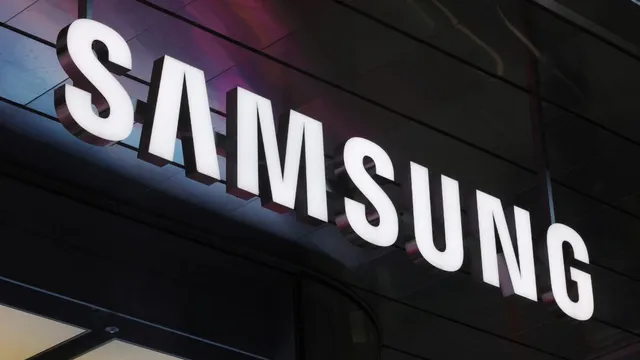- By Alex David
- Mon, 23 Jun 2025 06:31 PM (IST)
- Source:JND
With the imminent unveiling of the Galaxy Z Flip 7 on July 9, Samsung has revealed that its next flagship mobile chipset will be the Exynos 2500. Although it was initially slated for inclusion in the Galaxy S25 lineup, it appears there were delays. Now it is confirmed to be entering mass production for the Z Flip 7, where it shall be integrated with major performance and efficiency enhancements.
Built on 3nm GAA Process with New FOWLP Packaging
With its state-of-the-art manufacturing process that uses Samsung's Gate-All-Around (GAA) Technology at the 3 nm level, the Exynos 2500 is an Exynos chip. This change enhances power efficiency and overall device performance while retaining use of Fan-Out Wafer-Level Packaging (FOWLP) which assists in heat dissipation and increased component thickness reduction; vital features for flip devices such as the Flip7.
Deca-Core CPU with Cortex-X925 and a New Core Layout
The newest Samsung release retains a deca-core configuration powered by dual Cortex X I025s along with a Cortex X925, adding another two cores into last year’s quad structure. Resulting from this update/us:update, maintaining equilibrium between performance and efficiency Here's a breakdown:
| Cluster | Cores | Frequency |
|---|---|---|
| Prime | 1x Cortex-X925 | 3.3GHz |
| Big (fast) | 2x Cortex-A720 | 2.74GHz |
| Big (efficient) | 5x Cortex-A720 | 2.36GHz |
| Small | 2x Cortex-A520 | 1.8GHz |
Samsung claims a 15% improvement in big-core performance compared to the Exynos 2400.
ALSO READ: OnePlus Nord 5 India Launch Set for July 8: Design Teased, Key Specs Leaked
Xclipse 950 GPU: 28% Ray Tracing FPS Boost
The Xclipse 950 GPU is Samsung’s fourth AMD RDNA 3-based GPU, now upgraded with 8 Work Group Processors and 8 Render Backends, compared to 6WGP/4RB in the previous generation. This enables:
- Up to 28% better ray tracing performance
- Hardware-accelerated ray tracing
- Enhanced gaming and graphics rendering
AI and NPU: 59 TOPS for On-Device Intelligence
AI has massively improved thanks to this upgrade, having provided on device dual cluster generative Exynos systems AI hypercores that can focus and multitask using up to 24K MAC NPU finishing at a staggering sixty-nine yielding twenty-nine percent over headroom boost. The benefits include:
- On-device generative AI tasks
- Real-time photo and video processing
- Improved smart assistant and camera functions
Camera and Video: 320MP Support + 8K HDR Video
The new ISP supports camera sensors up to 320MP with AI-based image processing. Key camera features include:
- Multi-layer noise reduction
- Dynamic Range Compression (DRC)
- 8K video recording at 30fps
- 8K video playback at 60fps
- AV1 video decoding support
Satellite Messaging, 5G & Connectivity Upgrades
Samsung’s latest modem adds Non-Terrestrial Network (NTN) support—enabling satellite messaging capabilities, a key feature for next-gen flagships. Other connectivity specs:
- 5G 3GPP Rel. 17:
- FR1: Up to 9.6Gbps
- FR2: Up to 12.1Gbps
- Wi-Fi 7 and Bluetooth 5.4
- Improved GNSS interface for better global positioning
Exynos 2500 vs Exynos 2400 vs Dimensity 9400: Specs Comparison
| Feature | Exynos 2400 | Exynos 2500 | Dimensity 9400 |
|---|---|---|---|
| Node | Samsung 4nm 4LPP+ | Samsung 3nm GAA | TSMC 3nm N3E |
| Prime Core | X4 @ 3.2GHz | X925 @ 3.3GHz | X925 @ 3.62GHz |
| GPU | Xclipse 940 | Xclipse 950 | Immortalis-G925 |
| NPU | 17K MAC / 42.5 TOPS | 24K MAC / 59 TOPS | MT NPU 890 |
| Storage | UFS 4.0 | UFS 4.0 | UFS 4.0 |
| Camera | 320MP / 8K@30fps | 320MP / 8K@30fps | 320MP / 8K@30fps |
| 5G Modem | 9.6/12.1 Gbps | 9.6/12.1 Gbps + NTN | - |
| Wi-Fi | 6E | 7 | 7 |
| Bluetooth | 5.3 | 5.4 | 6 |
Final Word: Ready for Galaxy Z Flip7, Exynos 2500 Is a Major Leap
Exynos 2500 is set for mass production alongside the launch of Galaxy Z Flip7 on July 9. Samsung has made significant improvements to in-house chips with 3nm fabrication technology improvements, GPU architecture, AI capabilities, and concurrent updates in satellite communication.
With this development, Samsung intends to regain competitiveness in the premium chipset market—most notably against Qualcomm and MediaTek.

